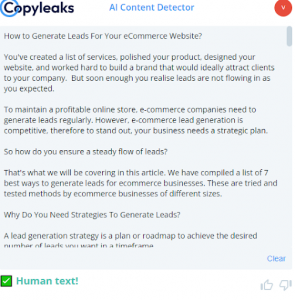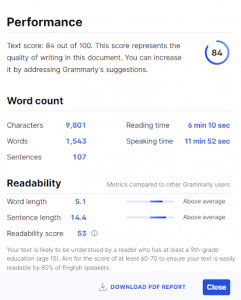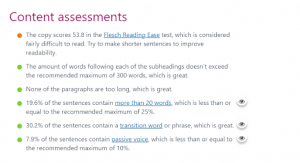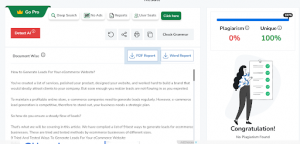How to Generate Leads For Your eCommerce Website?

You’ve created a list of services, polished your product, designed your website, and worked hard to build a brand that would attract clients to your company. But soon enough, you realize leads are not flowing in as you expected.
To maintain a profitable online store, e-commerce companies need to generate leads regularly. However, e-commerce lead generation is competitive. Therefore, to stand out, your business needs a strategic plan.
So, how do you ensure a steady flow of leads?
That’s what we will be covering in this article. We have compiled a list of the 7 best ways to generate leads for e-commerce businesses. They will help you make the most of the technology to organically attract leads and effectively convert them to grow your business.
Why Do You Need to Generate Leads for Your eCommerce Website?
Generating leads is essential for online business, ensuring a steady customer flow for consistent growth. We all admit that it is a challenging task, and many businesses are still using traditional methods like cold calling, following inappropriately compiled data, etc.
However, e-commerce lead generation needs to be strategized to reach a wide range of audiences and inspire them to make purchases in your store. A lead generation strategy is a plan or roadmap to achieve the desired number of leads in a given timeframe.
For example, if your goal is to generate 15 marketing-qualified leads in one week, then you will need to smartly plan your content marketing, email campaigns, social media, SEO, etc.
A good strategy can achieve the following for your business:
- Get more leads in your sales pipeline.
- Filter quality leads.
- Personalize marketing efforts.
- And analyze data to gain valuable insights.
Now, let’s look at ways to get them.
7 Tried-and-tested Ways to Generate Leads for Your eCommerce Website
Customer reviews and testimonials
Gone are the days when people bought a product simply because of an eye-catching advertisement. Today, customers are more inclined to buy a product with decent recommendations.
Testimonials and reviews are great ways to establish brand validity, social proof, consumer loyalty, and trust. Word-of-mouth marketing has been one of the best strategies for e-commerce business growth. A report by PowerReview suggests that 99.9% of consumers now first read the review of a product before shopping online.
For example, Patagonia’s “The Stories We Wear” section on its website features heartfelt testimonials from customers sharing personal experiences about their purchases. These narratives go beyond typical reviews, evoking emotional connections with the brand.
To get the most out of testimonials, consider getting them in audio or video form besides plain text. You can also host giveaways and offer discounts for people to try and review your products.
Utilize email marketing to generate leads.
You can lure in customers through different strategies, such as social media, paid ads, or referrals. However, the place where most businesses get stuck is to make users buy a product, retain them, and compel them to come back.
That’s where email marketing has shown tremendous results. Studies show that approximately 61% of people care about receiving promotional emails every week.
Over time, you are always in the back of your customer’s mind. So, the next time they want something you sell, they will turn first to you. A well-planned e-commerce email marketing campaign boosts customer engagement and retention, ultimately bringing in more sales.
Paid Advertising
Business owners often confuse the idea of using organic methods like SEO and email marketing as a replacement for PPC (pay-per-click) campaigns.
PPC is an online advertising model to drive website traffic wherein the advertiser pays each time a user clicks on their ad. However, PPC for e-commerce involves leveraging tactics to maximize revenue. It offers instant traffic compared to SEO, which can be time-consuming.
A report by Google showed that businesses generate 89% more incremental traffic through search ads than any other form of marketing. Hence, a good marketing strategy combines multiple strategies, paid and organic, in the right way.
So, pay-per-click drives click-throughs, assisting in lead generation and sales growth. It is a great way to achieve business objectives effectively.
Website optimization
Website optimization to meet modern demands is crucial for e-commerce lead generation.
Your website is your number one asset, representing your business digitally. It is here where your customers will reach out to you through your ads, social media, or other platforms. Hence, your website should hook visitors and compel them to explore and purchase your product.
That’s only happening if you keep your website well-optimized in design, content, and performance. According to a Statista report, retail e-commerce sales grew to nearly $5.2 trillion in 2021 and are predicted to cross $8 trillion by 2027.
Optimizing your site improves the user experience, making navigation and searching a breeze for visitors. This leads to more traffic from search engines and higher conversion rates, ultimately enhancing your brand’s credibility.
But are you wondering how to optimize your website?
Well, there are many ways to optimize your website depending on your unique business needs. Some of the common aspects that you cannot avoid are:
- Figure out your target audience. Conduct research and create buyer personas to make content that speaks to them.
- Once done, start building landing pages that grab attention with catchy headlines and persuasive content with attractive product displays.
- Additionally, on-page optimization will enable a fast and seamless user experience, inspiring them to explore and purchase.
- Make sure the UX design of your website is easy to navigate. Organize it logically, label things clearly, add a search bar, and make menus easy to find.
- Employ a mobile-first approach to reach a wider audience.
- Check the functionality and performance of your website through A/B testing.
Apart from these, there are two most important aspects of website optimization:
- Content marketing will help you convey your message to customers.
- SEO of your website will help it cut through thousands of existing websites and rank on search engines (SERPs).
Pro Tip: Analyze Your Competition for Website Optimization One of the best ways to optimize your website is to analyze your competitors and see how they craft user experiences on their sites. If you’re using a Shopify store, you can find inspiration from some of the best Shopify stores listed on eComStart.
Let’s get into both of them in detail!
Content marketing
Driving traffic to your e-commerce website through SEO and PPC marketing is just the tip of the iceberg. You need to reel in those visitors and turn them into loyal customers. That’s where content marketing swoops in.
Content marketing helps e-commerce businesses attract and retain target audiences. They do more than just ‘grab attention’! A well-written piece of content or copy can guide the visitor through different phases of their buyer’s journey.
Moreover, high-quality blogs infused with the right keywords can take you to the top of Google search results, resulting in significant traffic for conversion. According to HubSpot research, businesses that engage in content marketing drive 55% more traffic than those that do not.
So, creating valuable content that resonates with your targets’ minds can help you generate more leads and boost your conversions into long-term customers.
SEO
Nearly 81% of people search online before buying a product, suggesting SEO as a game-changer for e-commerce. Without visibility, your brand awareness suffers, purchases slow down, and competitors outpace you. Even paid campaigns can’t assure trust.
SEO provides long-term benefits, maintaining top positions for higher click-through rates and conversions. Unlike paid ads, SEO efforts build upon existing positions, driving consistent website traffic.
It’s the most effective tactic, driving over 300% more traffic than social media and accounting for 39% of e-commerce traffic. Hence, SEO directly puts your business in front of potential buyers, maximizing leads.
Leveraging social media
If you intend to generate quality leads, you cannot overlook the power of social media platforms. When it comes to B2C platforms, especially for e-commerce businesses, Instagram, Facebook Marketplace, YouTube, and TickTok are the most popular ones.
Facebook lead ads, live-streaming for real-time interactions, gamification, pop quizzes, collaborating with micro-influencers or leveraging user-generated product content to lend credibility, lucrative offers, effective storytelling, encouraging conversations, and forming communities/teams work as lead magnets to optimize your user engagement.
While these platforms are great and cater to a large audience, you can also bank on networks like Twitter or LinkedIn for your B2B sales and expand your professional connections. As an e-commerce business, you can use target marketing, measure, and adjust your strategies to put forth your product to these professionals.
You can use AI, data science, augmented and virtual reality, the metaverse, etc. to create content that your customers can connect with. This affinity will result in more leads.
However, it demands consistent efforts and engagement from a lead generation specialist to generate leads from social media. It must build lasting brand awareness, establish trustworthiness, and emphasize customer relationships.
Wrap Up
eCommerce success hinges on a mix of lead-generation tactics. Businesses can achieve remarkable growth by customizing a flexible lead generation strategy that combines the different methods mentioned above. If you use these e-commerce lead generation techniques and product development strategies, you will be on your way to your online business success.
Ensure to adapt your approach according to your specific business needs and target audience. By continually refining and optimizing your strategies, you can stay ahead in the competitive e-commerce landscape and drive sustainable growth.
Author Bio – Jigar Agrawal
Jigar Agrawal is a Digital Marketing Manager at eSparkBiz Technologies. He is passionate about anything related to Digital Marketing and Trending Technologies. Wants to unlock the world of technology and Social Media where every day there is a chance of new possibility as well as innovation.
AI Report :


Yoast SEO:

Plagiarism Report :

